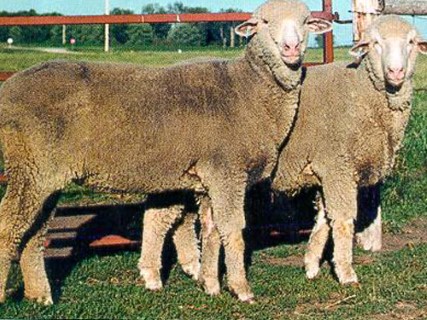A number of sheep breeding nations, including Phoenicia,
Italy, and Spain, are believed to have played a part in the development of the
Merino sheep. However, it is generally agreed upon that the Moors, who
dominated Spain through the eighth to thirteenth centuries, were primarily
responsible for selectively breeding the animals to such an extent that the
wool they produced became superior to that of all other sheep.
Indeed, the word Merino may be of Moorish origin, possibly
evolving from their word for a judge that settled disagreements about flocks
between shepherds. By the eighteenth century, Merino wool was considered so
luxurious and valuable only the sovereign of Spain was permitted to send Merino
sheep out of the country, which he occasionally conveyed as gifts.
Merino fleece sits at the top of the grading
charts for fineness; they are the standard against which all others are
measured. Merino sheep are also noted for their hardiness and their herding
instincts and have been used as parents of several other breeds, notably the
Rambouillet of France.
